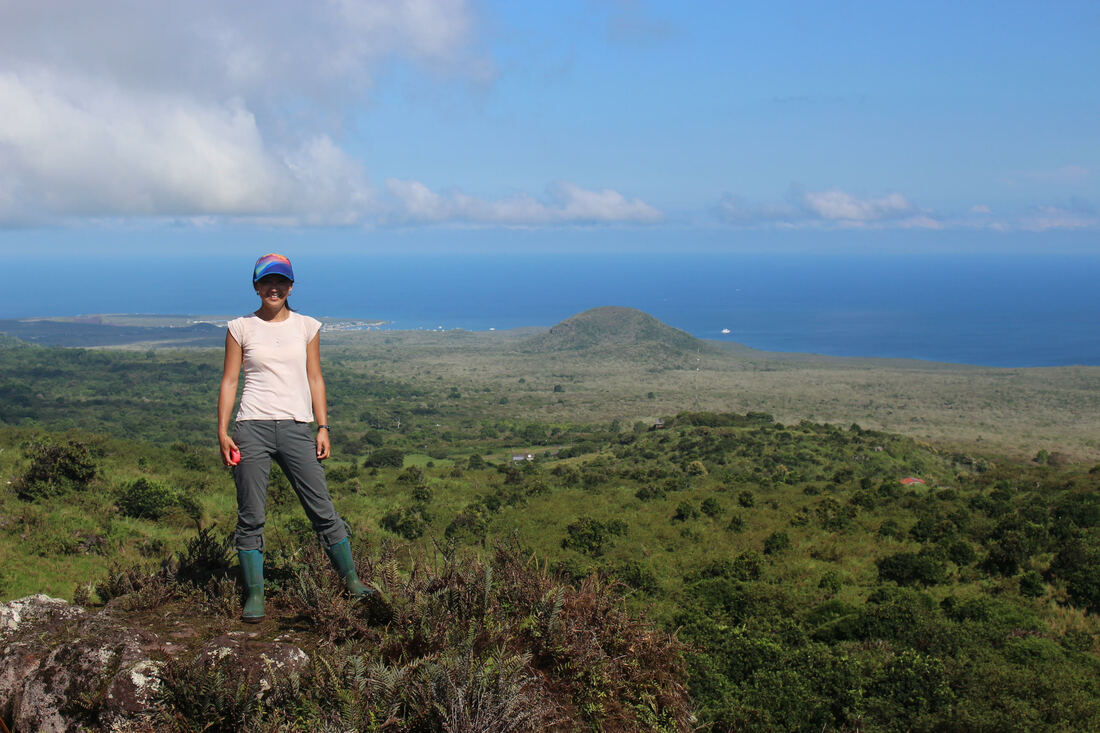Ecohydrology is a field of research that links hydrological and ecological processes by studying the feedbacks that occur between both components. I am completely biased, but I do believe that some of the most exciting hydrology related research is currently related to ecohydrology.
What are your undergraduate and graduate degrees in?
My undergraduate degree was in Integrative Biology from UC Berkeley.
Graduate degree was in Ecology and Evolutionary Biology from CU Boulder.
How did you arrive at working in/thinking about ecohydrology?
My undergraduate and graduate research interests were mainly focused on plant water and carbon relations. However, as I began collaborating more with watershed hydrologists, I realized how important it was to take a broader, landscape perspective. By focusing primarily on plant water cycling, I had been completely ignoring how water got to the plants in the first place. By recognizing that soil, plant, and atmospheric water cycling were inextricably linked, I began to take a more holistic approach to research and begin to ask more exciting questions.
What do you see as an important emerging area of ecohydrology?
Because I come from a background in ecology, I may view ecohydrology differently than most ‘ecohydrologists.’ The discipline of ecohydrology arose from hydrology, and I would argue that a more accurate description of the field in its current state is ‘hydrological-ecology,’ since hydrology is still very much the main focus. However, the field is rapidly changing and the integration of both hydrologic and ecologic processes is becoming more common.
One of the most exciting areas are research in ecohydrology is our ability to begin describing mechanisms that govern how water moves through complex landscapes (e.g. mountain watersheds), and the subsequent response by vegetation once water becomes available. By moving beyond simply describing patterns of water availability and water use, but testing mechanisms on why water moves or how it is used in a particular way, the field of ecohydrology can truly begin to integrate both disciplines.
Do you have a favorite ecohydrology paper? Describe/explain.
Most of us are taught that water typically moves from the soil, to the roots, and then to the atmosphere (i.e. SPAC); however, it is becoming increasingly common to find studies that show direct uptake of water from the leaves and the subsequent downward movement of water into trunks of trees. This mainly occurs in foggy or cloudy environments, where cloud water or fog can be a critical moisture source. This ‘wicking’ of occult precipitation from the atmosphere is not only important in regulating plant water status, but it can also being an important moisture source in stream and even ground water (e.g. cloud water input, fog drip, etc.). Thus, my favorite ecohydrology ‘paper’ is not a paper, but a book, titled, ‘Tropical Montane Cloud Forests: Science for Conservation and Management,’ Eds. Bruijnzeel, Scatena, and Hamilton. While the scope of this book is about cloud forests, the perspective that fog and cloud water can be important sources of moisture is quite important. Furthermore, if we begin to lose vegetation from these tropical cloud forests, from either deforestation or ‘cloud-lifting,’ then there may be less precipitation inputs into tropical headwater ecosystems, leading to less streamflow in the lowland tropics, particularly during the dry season. These feedbacks between vegetation and hydrology are tightly coupled in these systems, and offers exciting opportunities for research!
What do you do for fun (apart from ecohydrology)?
I love being outdoors and working in the field is one of my favorite things to do. When I lived in Boulder, CO and Bozeman, MT, skiing and hiking were my two favorite activities. Now that I live in Tucson, I am trying to take advantage of being able to hike 365 days of the year. I have two kids who are now finally big enough to hike longer distances on their own and it is my goal to explore more of AZ this year. At home, I love to cook, and spending hours on Sunday afternoon cooking a big family meal is a perfect way to wrap up the weekend.

 RSS Feed
RSS Feed